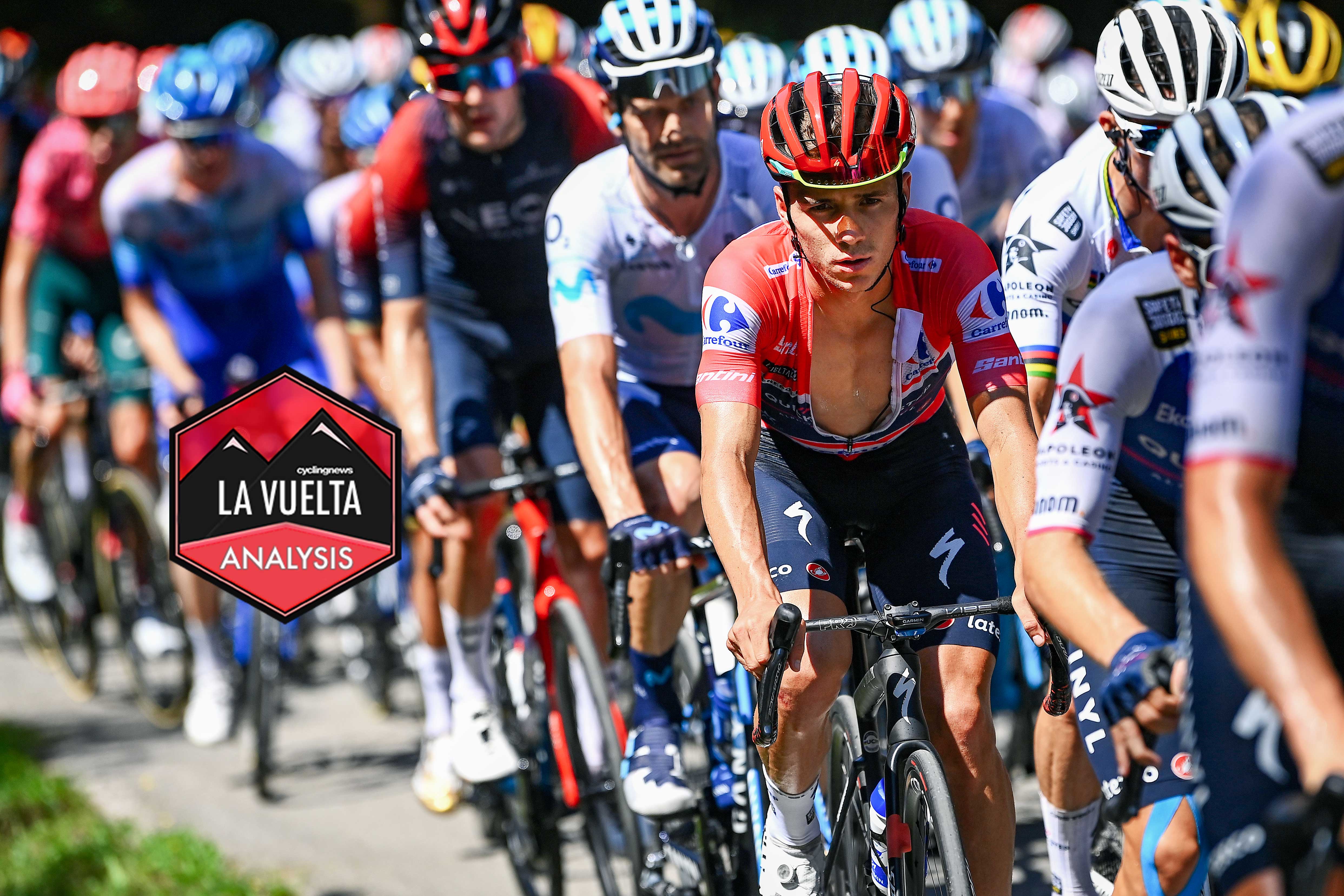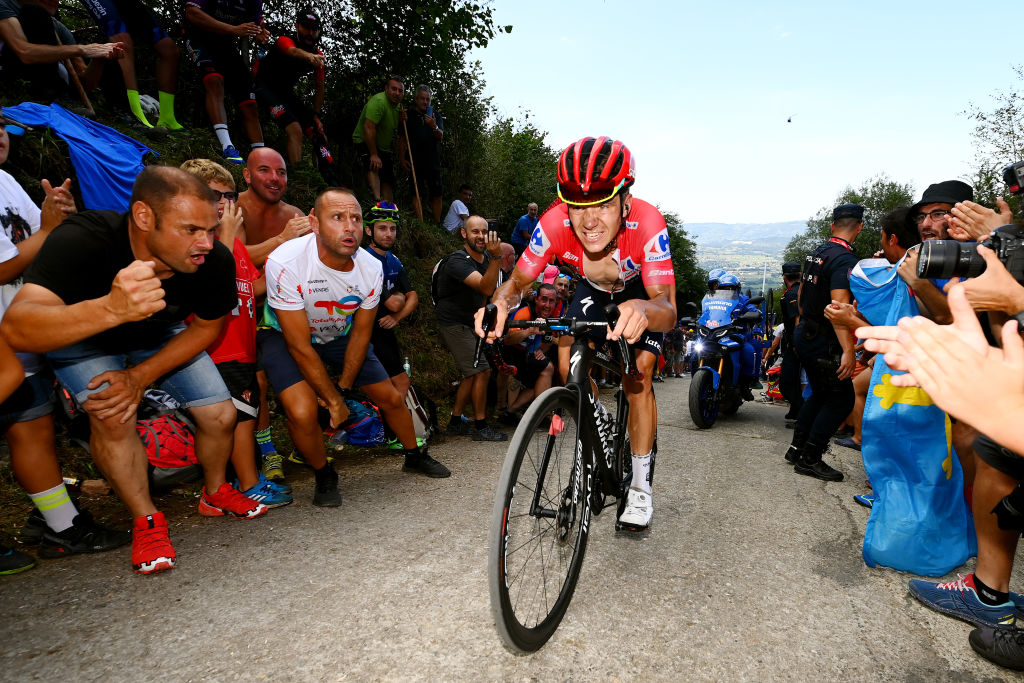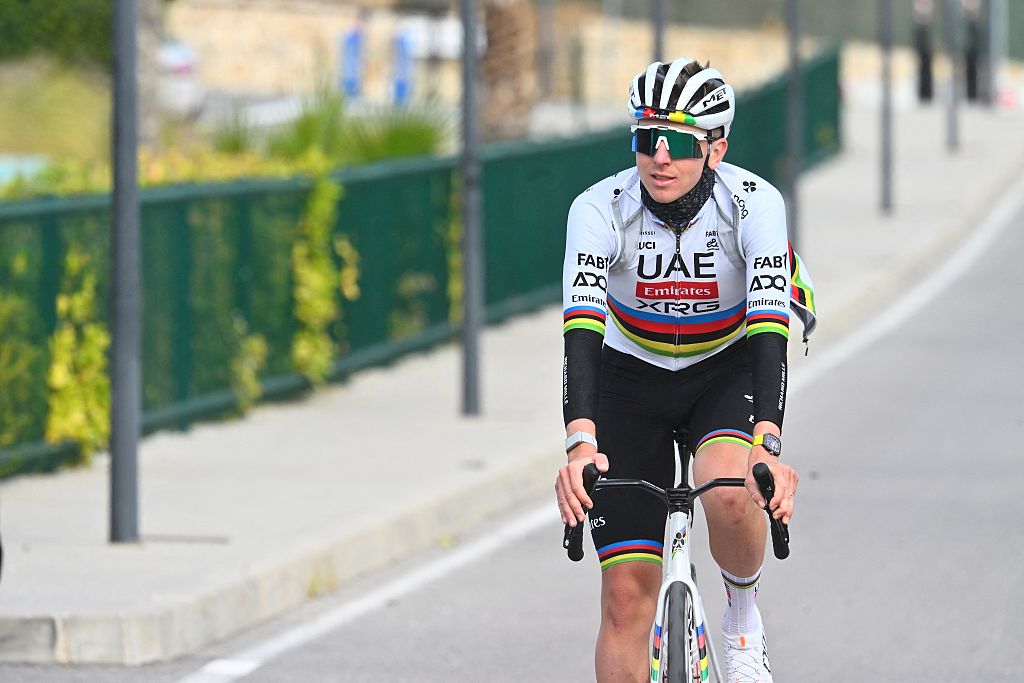Philippa York analysis: Evenepoel is a level above everyone else at Vuelta a España
Seated attacks and a confident dominant display in the first week paint a bleak picture for Evenepoel's rivals

The latest race content, interviews, features, reviews and expert buying guides, direct to your inbox!
You are now subscribed
Your newsletter sign-up was successful
At the conclusion of the first week racing on Spanish soil, things are looking fairly ominous for the general classification contenders who aren’t called Remco Evenepoel.
The stages around the Basque Country were the ones supposed to be the least suited to the young Belgian, with their sharp gradients and the possibility of bad weather waiting to catch out the inexperienced. However, other than a brief glimpse of resistance from Primož Roglič in the uphill sprint to Laguardia on day four, the Quick-Step Alpha Vinyl leader has looked at ease with the terrain and his rivals.
The worrying thing for those hoping to dethrone Evenepoel is that the next phase of the race, the middle week, contains stages which suit his characteristics better.
Barring any incident, they’re immediately going to lose more time to him after the rest day in the 30km time trial. He said it would be good to win a stage in the red jersey so he’s odds-on favourite to accomplish that wish.
As for the other twelve days of racing that lie ahead, the consensus before the start was that the longer climbs that are coming would mean the purer climbers could re-enter the GC competition.
But having watched Evenepoel operate so far, I see little chance of that immediately happening. It might later, once he’s been worn down by the pressures and responsibilities of the race lead, but he’s looking pretty reassured at this point in proceedings.
The fact that he’s ridden the majority of his rivals off his wheel without having to place an attack out of the saddle is the most worrying thing for them.
The latest race content, interviews, features, reviews and expert buying guides, direct to your inbox!
The strength shown in doing so is a sign that he sits a level above everyone else and he hasn’t felt the need to place a big acceleration to get rid of everyone.
A seated attack is doing the damage already and that’s why the mountains that are on the menu in the middle week become less of a concern, because they’re less steep and longer, the type that sees almost everyone sitting down and working away.
There’s no Alberto Contador types who are able to do 10 or 15 minutes en danseuse to upset the steady tempo in the Vuelta peloton. Therefore, Remco Evenepoel ought to be more at ease with his high cadence style.
He shouldn’t be too affected either by the change in temperature that’s going to happen with the 900km transfer to the Costa Blanca as he was there immediately before the race to acclimatise to the hot Spanish summer and train on some of the steeper climbs that lie inland. The latter has obviously worked so there’s nothing to indicate that the prospect of temperatures in excess of 30 degrees Celsius are going to slow him down either.
There’s been a lot written about Evenepoel’s ambition, ego and character, as if those traits could somehow limit his prowess as a racer. They’re precisely the parts of a mental puzzle needed to succeed and now he’s in the red jersey, his confidence in what he can do and how he goes about doing it will be even greater.
Looking at his QuickStep team, they have the resources to maintain a certain level of control over the peloton in the coming stages. One of the concerns at the Vuelta is the wind, but as a collective they have plenty of experience with echelons. What’s more, Remco looks strong enough to look after himself even if something desperate happens and he finds himself on his own. It’s definitely advantage Belgium for the middle stint.

For defending champion Primož Roglič, things are decidedly more difficult. The brief moment of brilliance on stage four is looking just that: brief. Normally, short and steep climbs are his terrain but he’s suffering so either his back injury is still giving him trouble or his form isn’t where it needs to be.
Maybe the heat in Spain’s south will allow a recovery but he’s going to lose at least another 30 seconds in the TT and then he’s over two minutes behind and hoping for a collapse of the race leader somewhere.
Movistar will be happy to see a resurgent Enric Mas climbing at the front again. Though he is going to lose a chunk of time against the clock on stage 10 and might fall from second on the GC, the signs are good with what’s to come in the high mountains.
I don’t see either Jumbo-Visma or Movistar making any great tactical moves in the immediate days to come: Mas can’t cope with echelons and the Dutch squad need Roglič to recover.
That leaves Ineos Grenadiers and BikeExchange-Jayco to think of something in terms of long-range racing moves. Certainly, Simon Yates won’t be afraid to try an ambitious attack if the opportunity arises.
The Ineos tactic of multiple leaders has self-selected Spanish champion Carlos Rodríguez as their best hope. However, it’s his first Grand Tour so the next phase is a bit of an unknown, and he’s fighting directly with Juan Ayuso for the home country’s rising star status.
They might play wait and see, which will suit Remco Evenepoel and Quick-Step Alpha Vinyl just fine.
Philippa York is a long-standing Cyclingnews contributor, providing expert racing analysis. As one of the early British racers to take the plunge and relocate to France with the famed ACBB club in the 1980's, she was the inspiration for a generation of racing cyclists – and cycling fans – from the UK.
The Glaswegian gained a contract with Peugeot in 1980, making her Tour de France debut in 1983 and taking a solo win in Bagnères-de-Luchon in the Pyrenees, the mountain range which would prove a happy hunting ground throughout her Tour career.
The following year's race would prove to be one of her finest seasons, becoming the first rider from the UK to win the polka dot jersey at the Tour, whilst also becoming Britain's highest-ever placed GC finisher with 4th spot.
She finished runner-up at the Vuelta a España in 1985 and 1986, to Pedro Delgado and Álvaro Pino respectively, and at the Giro d'Italia in 1987. Stage race victories include the Volta a Catalunya (1985), Tour of Britain (1989) and Critérium du Dauphiné Libéré (1990). York retired from professional cycling as reigning British champion following the collapse of Le Groupement in 1995.

